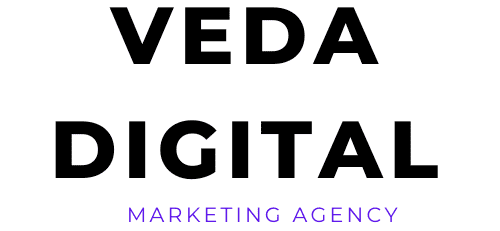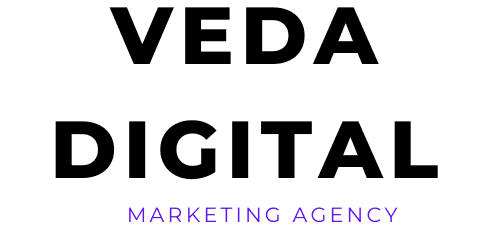Beginner to Pro: Your Ultimate Guide to Digital Marketing
Beginner to Pro: Your Ultimate Guide to Digital Marketing
Introduction
In today’s hyper-connected world, digital marketing has become more than just a buzzword — it's the backbone of business growth and brand visibility. Whether you're a student exploring career options, a small business owner aiming to attract more customers, or a marketer ready to sharpen your skills, understanding digital marketing is non-negotiable.
But where do you start? And more importantly, how do you go from a complete beginner to someone who can confidently run digital campaigns, analyze data, and scale results?
This guide walks you through every stage of digital marketing — from grasping the fundamentals to mastering advanced strategies used by industry pros. By the end, you won’t just know what digital marketing is — you'll know how to use it effectively to drive real results.
Let’s dive in and turn that curiosity into capability
What Is Digital Marketing?
Digital marketing refers to all online efforts to promote products or services using digital channels such as search engines, social media, email, and websites.
Key Components:
- SEO (Search Engine Optimization) – Improving website visibility on Google.
- Content Marketing – Creating valuable content to attract and engage audiences.
- Social Media Marketing – Promoting brands through platforms like Instagram, LinkedIn, and Facebook.
- Email Marketing – Building relationships through personalized email campaigns.
- PPC (Pay-Per-Click Advertising) – Paid ads to instantly drive traffic.
- Affiliate Marketing – Earning commissions by promoting others’ products.
- Influencer Marketing – Partnering with influencers to reach target audiences.
- Analytics & Conversion Optimization – Measuring performance and improving ROI.
Why Digital Marketing Matters
- 🌍 Global Reach: Reach customers worldwide with minimal cost.
- 💸 Cost-Effective: More affordable than traditional marketing.
- 📊 Measurable Results: Track every click, impression, and conversion.
- 🎯 Targeted Audience: Reach people based on interests, demographics, and behavior.
- ⚡ Faster Results: Campaigns can go live in minutes.
Step-by-Step Guide: From Beginner to Expert
Step 1: Learn the Basics
Start by understanding the foundations — SEO, social media, content, and analytics.
👉 Tools to start with: Google Analytics, Google Ads, SEMrush, and Canva.
Step 2: Build Your Online Presence
Create your personal brand or business website. Optimize it for SEO, and start sharing content regularly.
Step 3: Experiment & Practice
Run small ad campaigns, write blogs, or manage a social media page. The more you experiment, the faster you learn.
Step 4: Master Key Platforms
Choose your niche — maybe SEO, social media marketing, or content strategy — and go deep into it.
👉 Certifications: Google Digital Garage, HubSpot Academy, Meta Blueprint.
Step 5: Analyze & Optimize
Use analytics tools to track what’s working. Test headlines, keywords, and visuals. Learn from data, not assumptions.
Step 6: Stay Updated
Digital marketing trends evolve constantly — AI tools, voice search, and influencer strategies are reshaping the industry. Follow leading blogs like Neil Patel, Moz, and HubSpot.
Essential Tools for Digital Marketers
Category | Tools |
SEO | Ahrefs, SEMrush, Google Search Console |
Social Media | Buffer, Hootsuite, Meta Business Suite |
Email Marketing | Mailchimp, ConvertKit, Sendinblue |
Analytics | Google Analytics, Hotjar, Mixpanel |
Design | Canva, Figma, Adobe Express |
Advanced Tips for Experts
- Use marketing automation to save time.
- Implement A/B testing for every campaign.
- Optimize for voice search and mobile-first indexing.
- Leverage AI-powered tools for predictive analytics and personalized marketing.
- Focus on customer experience (CX) — it’s the new marketing frontier.
Conclusion
Digital marketing is not just a skill — it’s a career, an art, and a science. Whether you’re a beginner learning SEO basics or an expert refining data-driven strategies, continuous learning and experimentation are key.
Start today. Learn, apply, and evolve — and you’ll transform from a digital marketing beginner into an industry expert in no time.
SEO Keywords to Include
- digital marketing guide
- digital marketing for beginners
- become a digital marketing expert
- online marketing strategies
- learn SEO and social media marketing
The Importance of Having a Website for Your Digital Identity and Online Presence
In the world of digital marketing, your website is your online headquarters — the center of your entire digital ecosystem. While social media, paid ads, and email campaigns help you connect with audiences, your website is where your brand truly lives.
1. Your Website Builds Credibility and Trust
A professional, well-designed website instantly builds trust with your audience. Consumers today research online before buying anything. If you don’t have a website, potential customers may doubt your legitimacy.
A website acts as your digital business card, showcasing who you are, what you offer, and why people should trust you.
2. It Serves as the Hub of All Marketing Activities
Every marketing effort — social media posts, Google ads, email campaigns, or YouTube videos — ultimately points users to one destination: your website.
Here, they can:
- Learn about your products or services
- Read your blogs and case studies
- Make purchases or inquiries
Without a website, your campaigns have no central point of conversion.
3. It Enhances Your Brand Identity
Your website reflects your brand’s personality, values, and mission. Through design, tone, colors, and content, you can tell your story exactly the way you want. It gives you complete creative control — something no third-party platform can offer.
4. It Improves Visibility Through SEO
A website optimized for search engines (SEO) helps people find you organically on Google. With the right keywords, backlinks, and content strategy, your site can attract traffic 24/7 — even while you sleep.
5. It Establishes Long-Term Ownership
Social media accounts are rented spaces — platforms can change algorithms or restrict reach anytime. But your website is your own digital property. You control it fully, ensuring stability and sustainability for your online presence.
6. It Enables Data Collection and Insights
Through tools like Google Analytics, you can track visitor behavior — how they found you, what they read, and what actions they take. These insights help you refine marketing strategies and improve conversions over time.
In Short
Your website is not optional — it’s the foundation of your digital marketing success.
It’s where your identity, authority, and brand voice come together to create lasting impact.
Everybody whose presence on digital marketing knows the cost and creation of website is how difficult and manage reccuring cost.
We are providing herewith a program (platform) you may thanks to us, its easy and cost effective as well as must know things are available for digital marketer.
You never regret for this !!!

